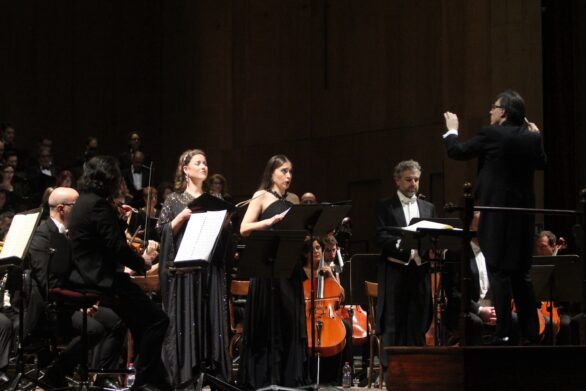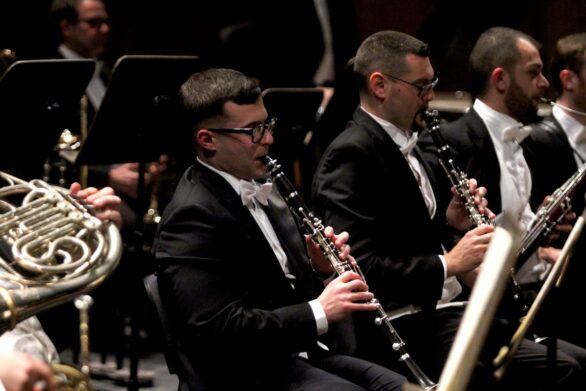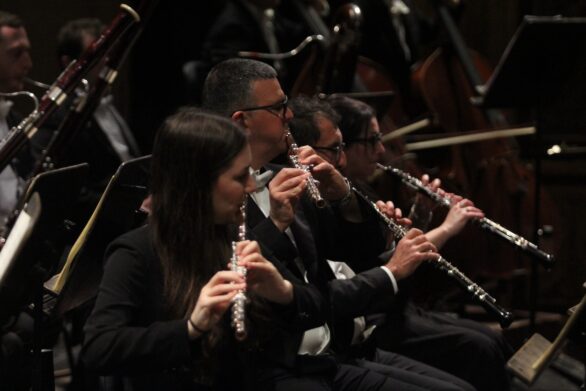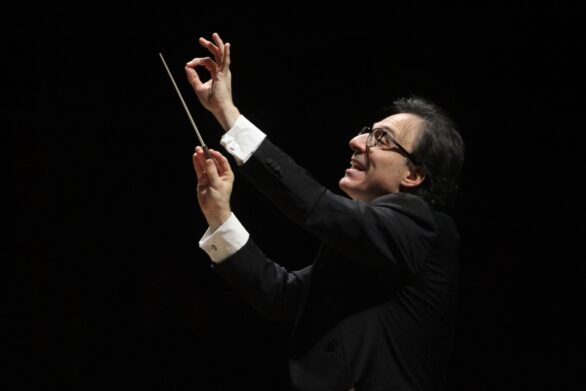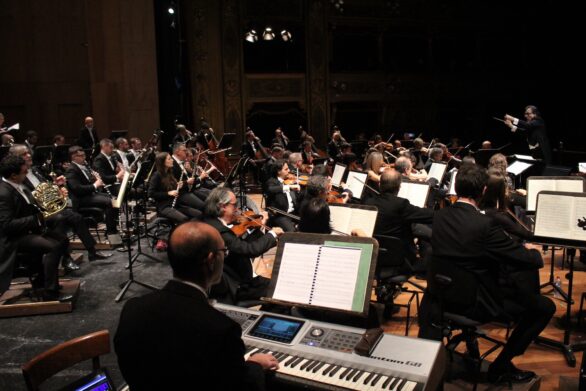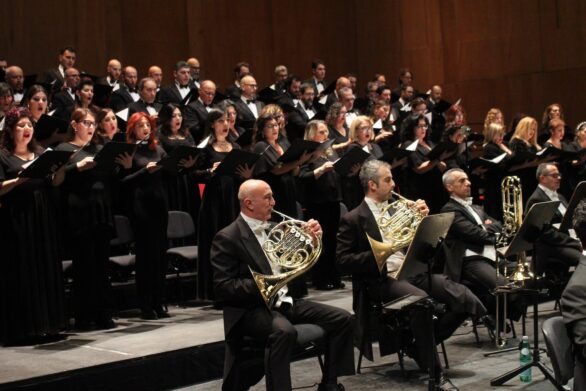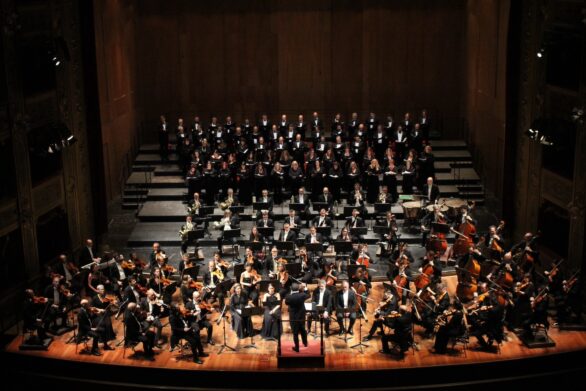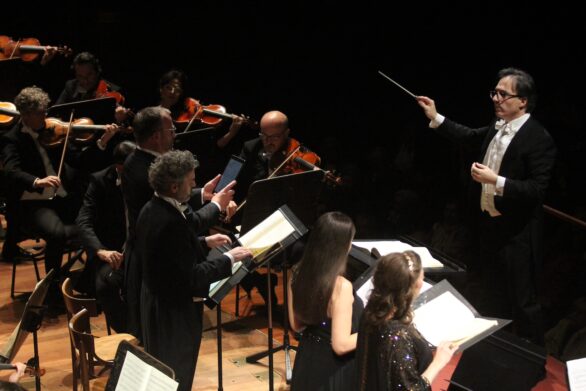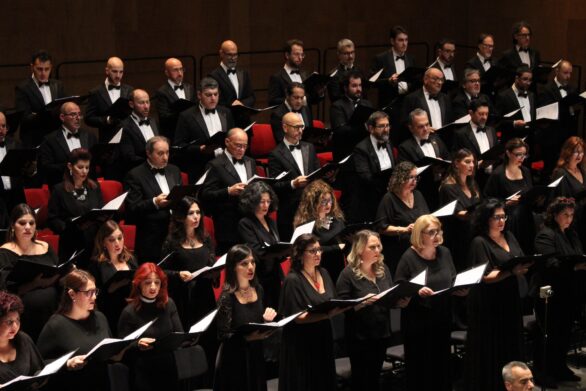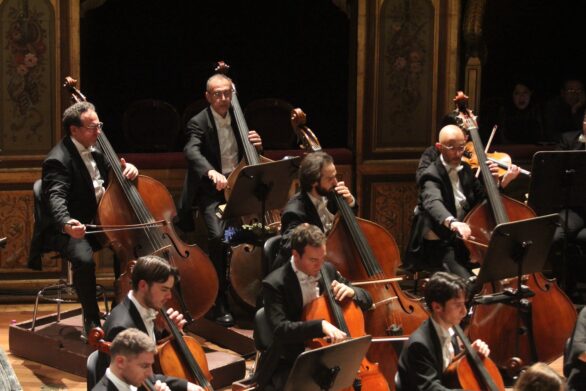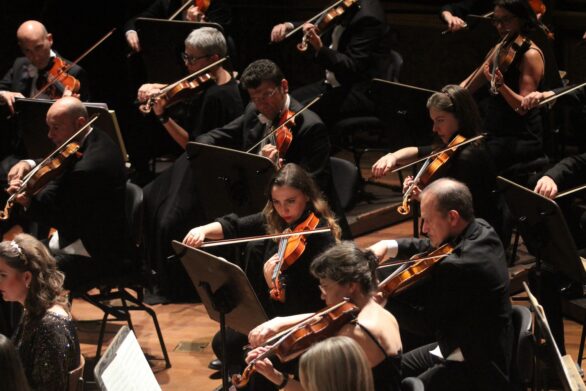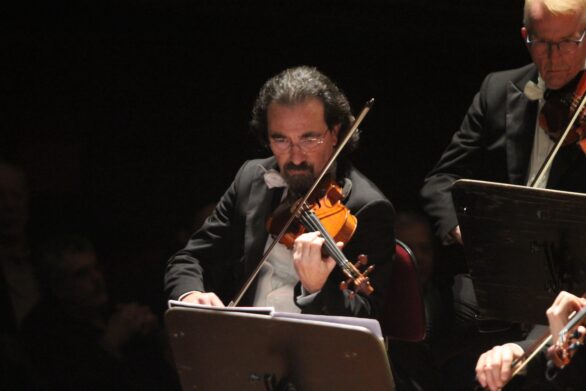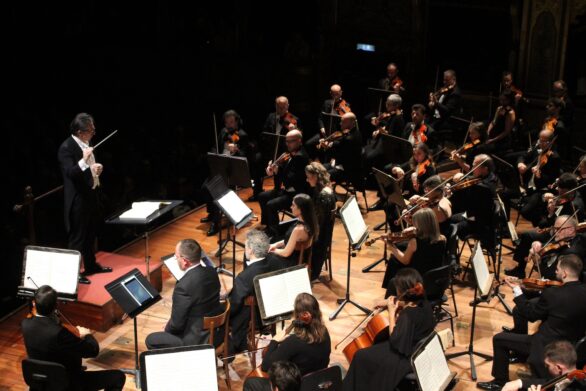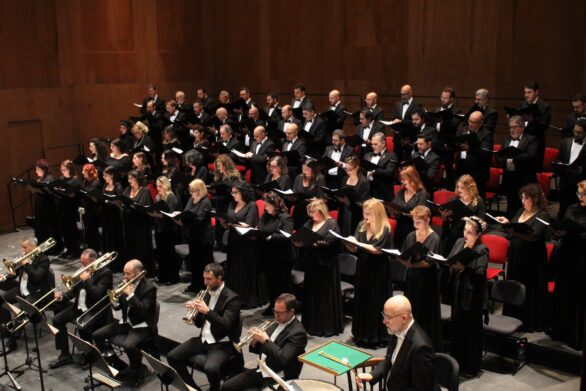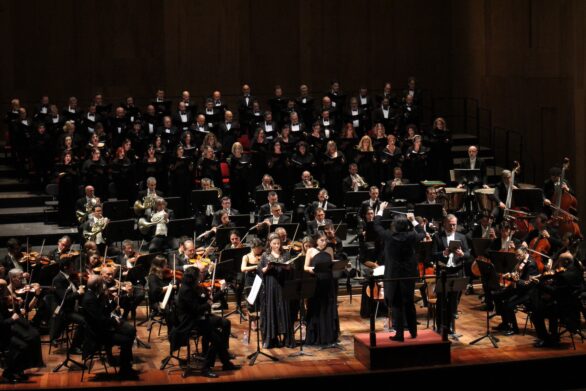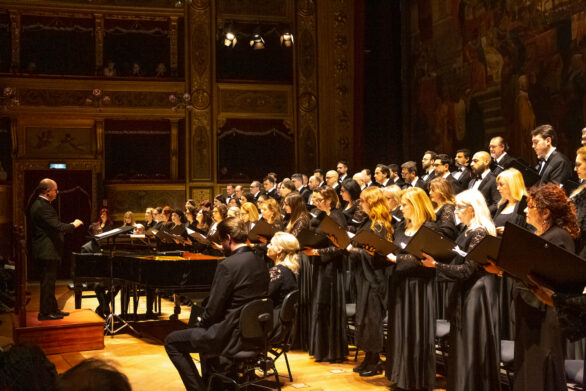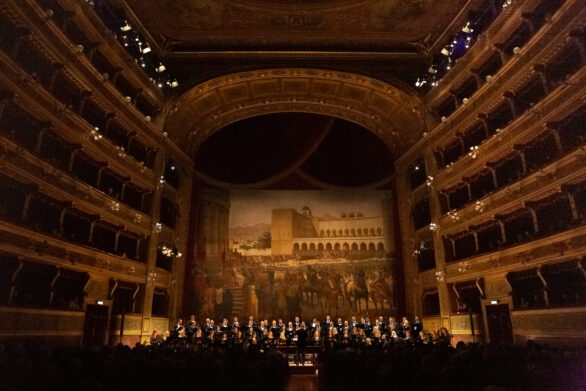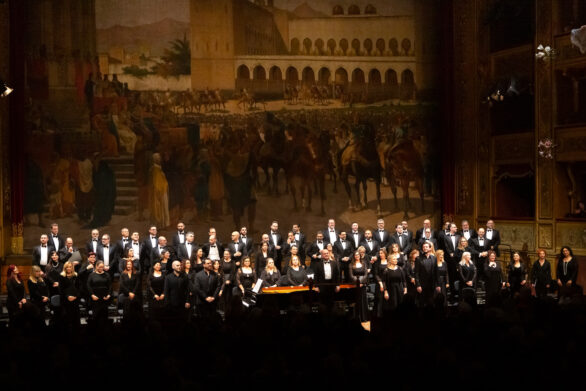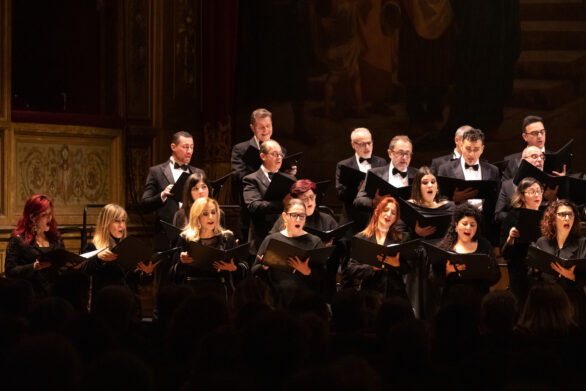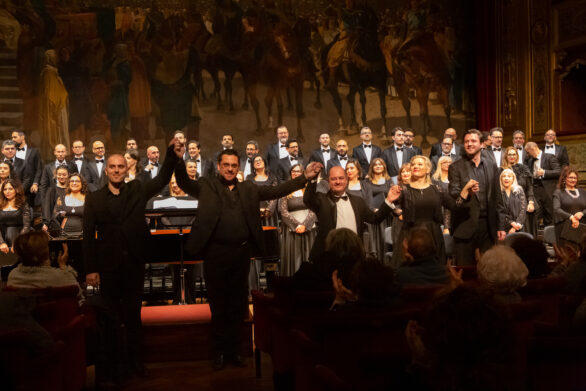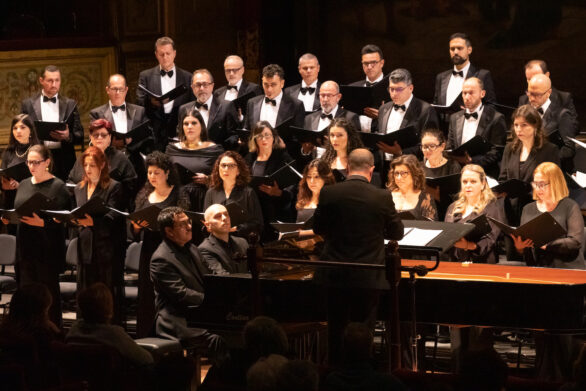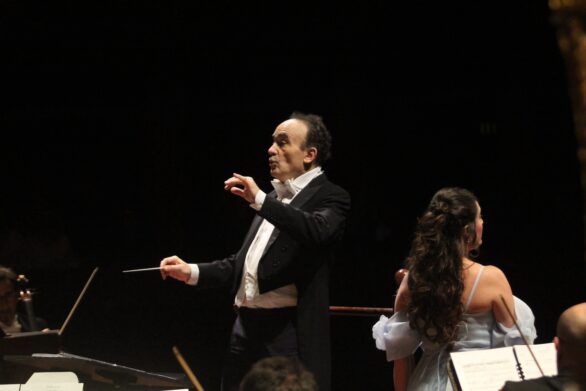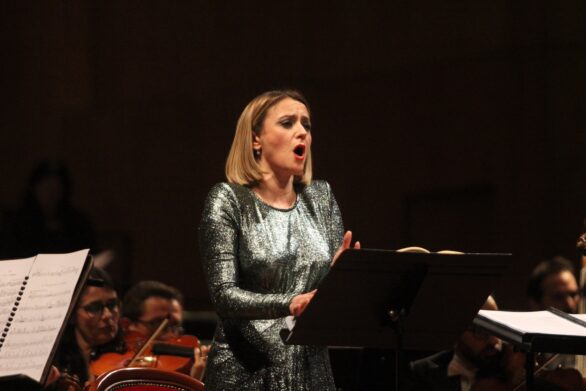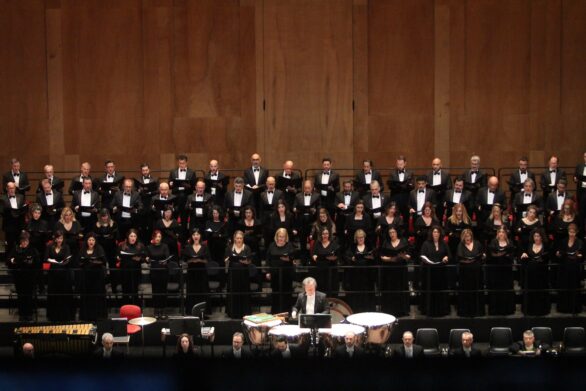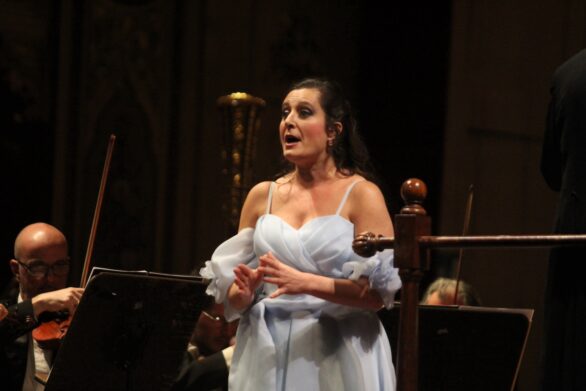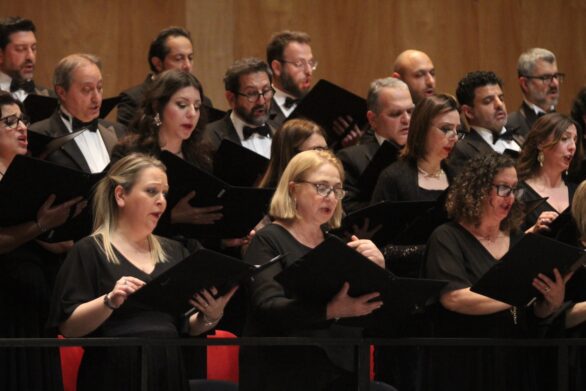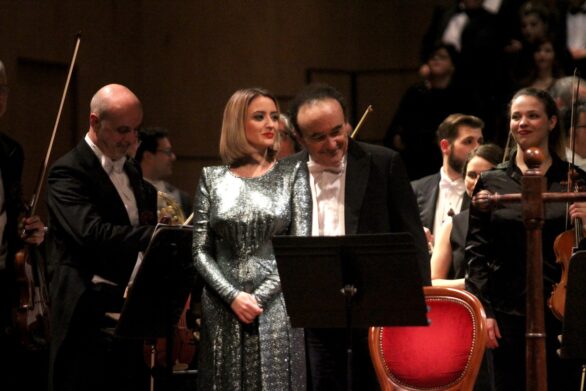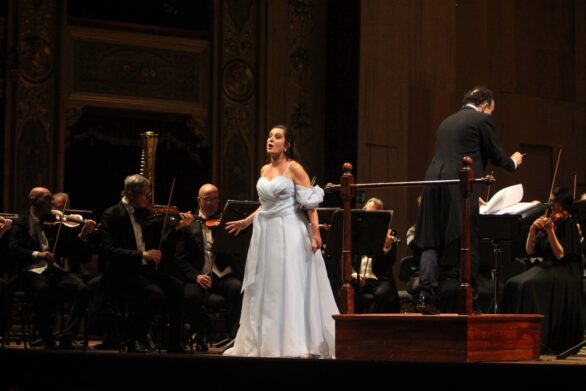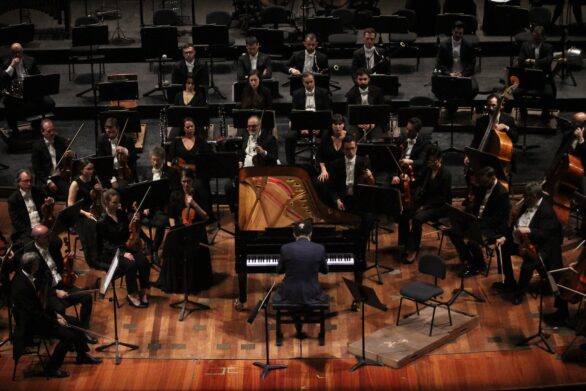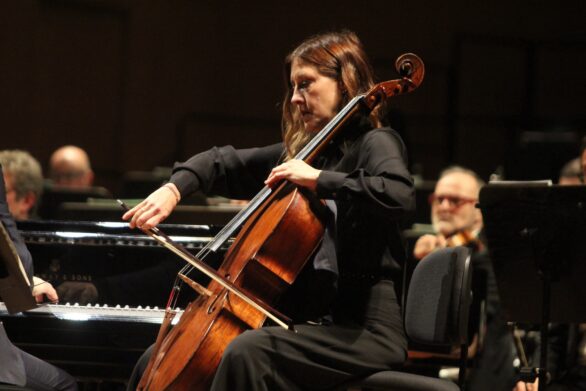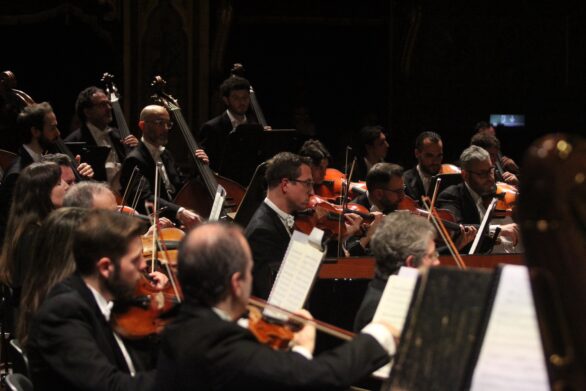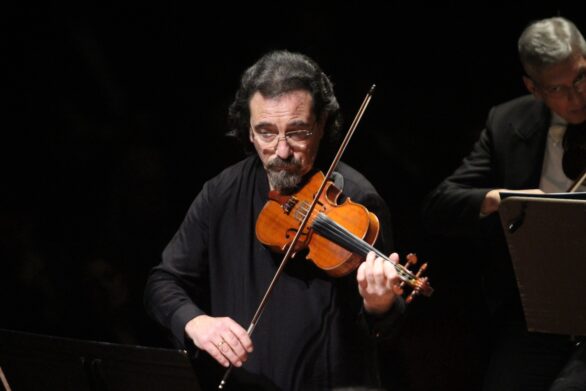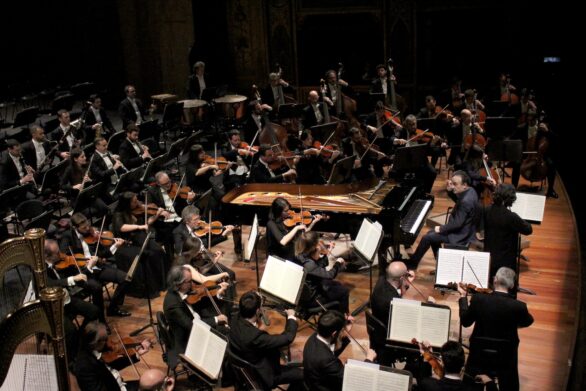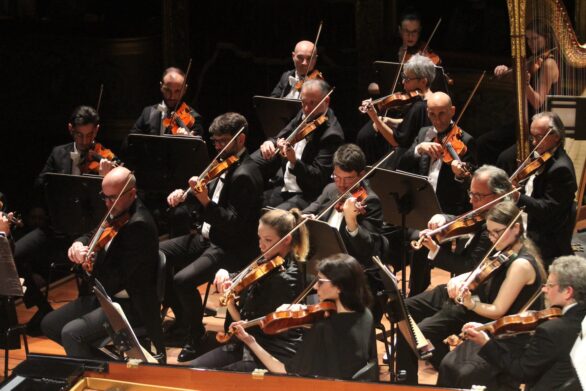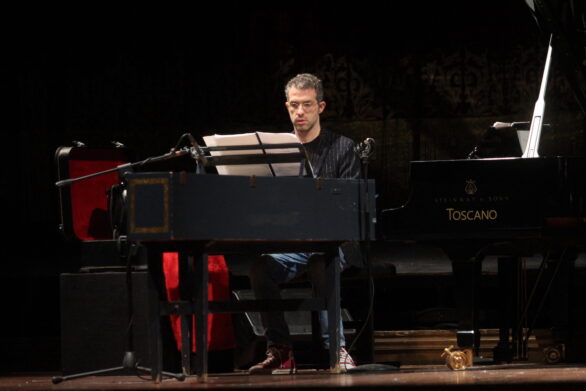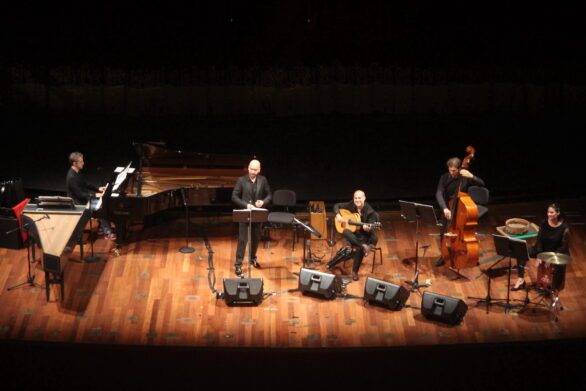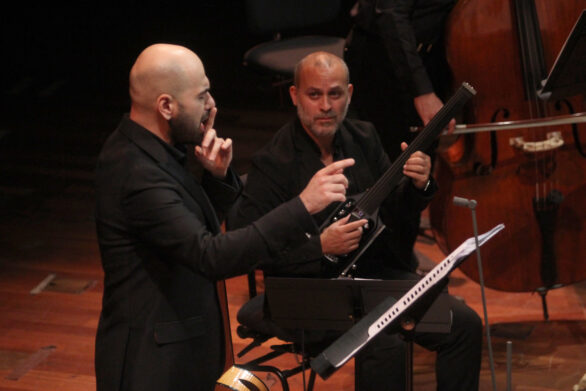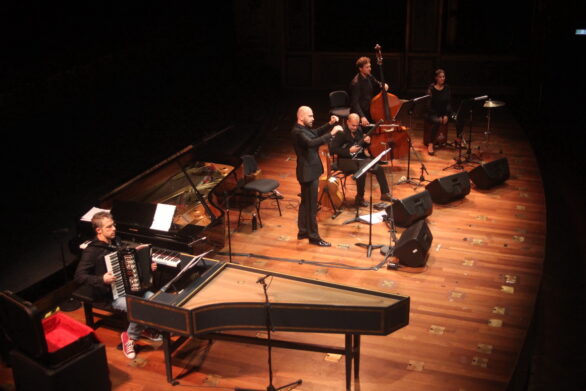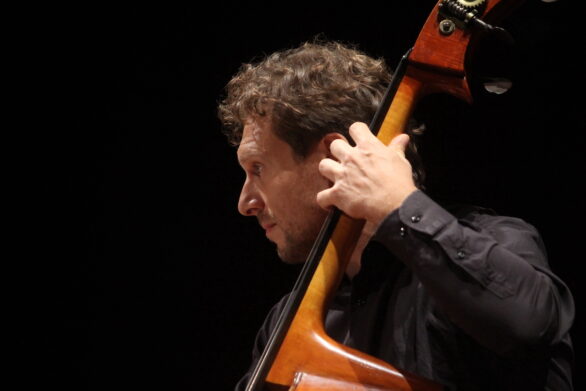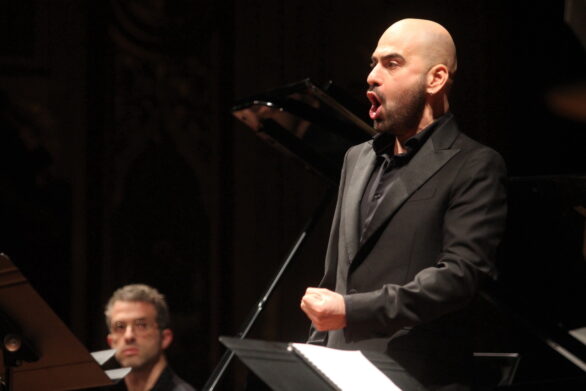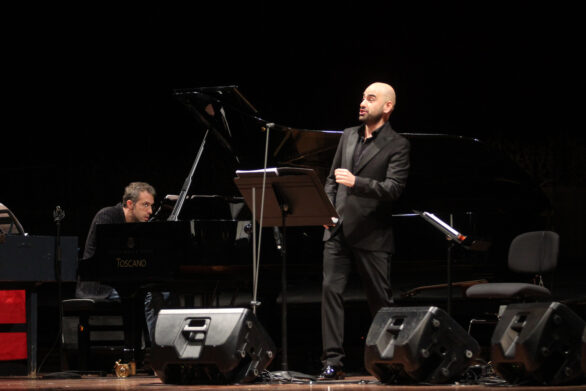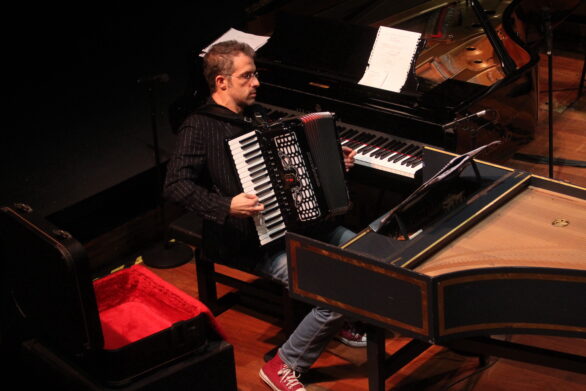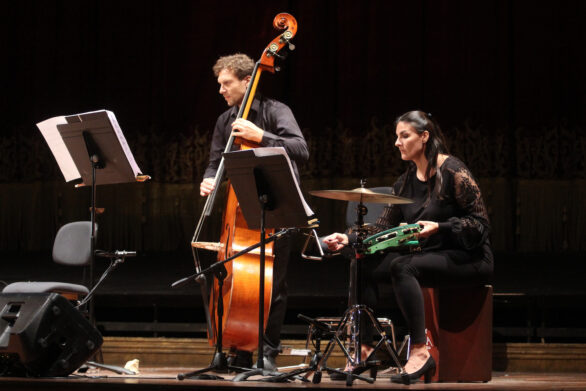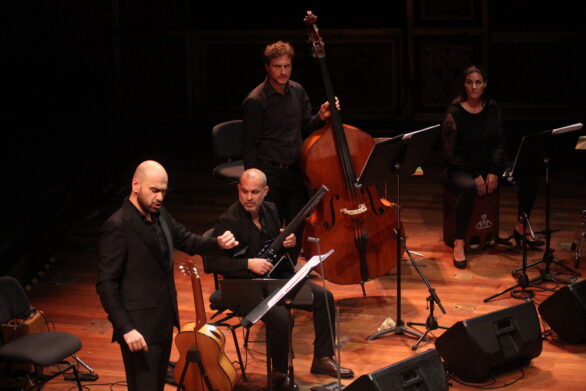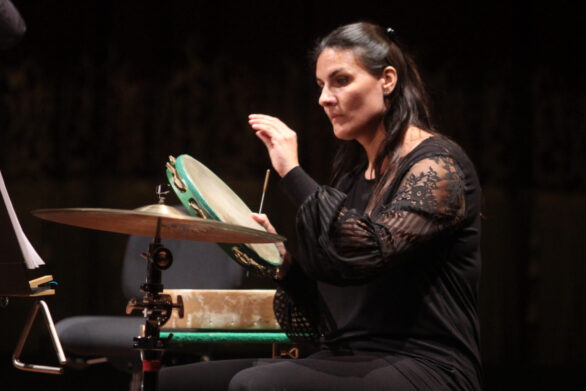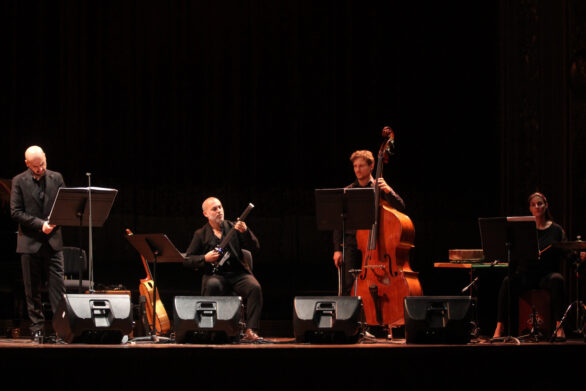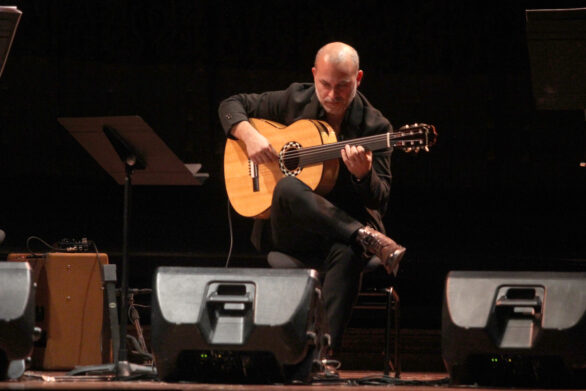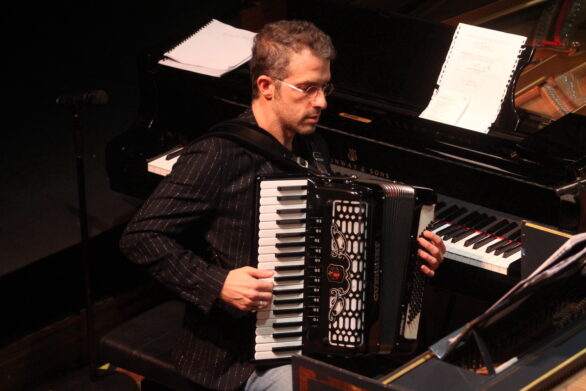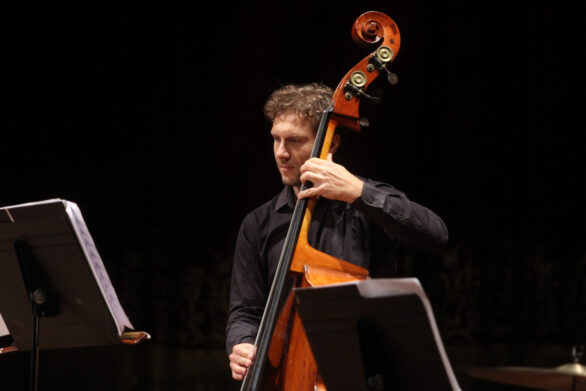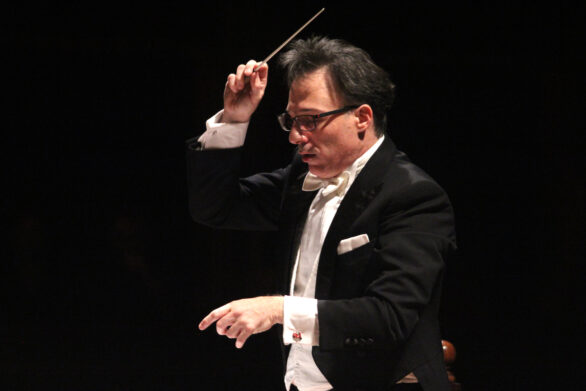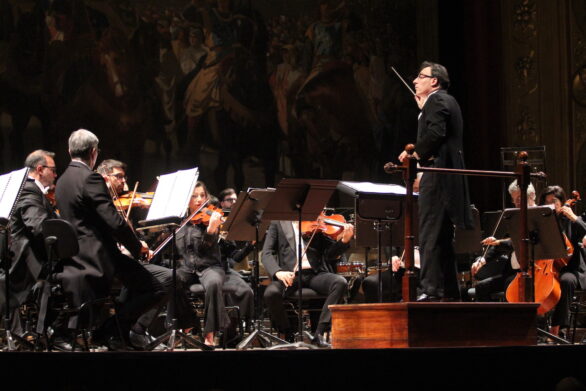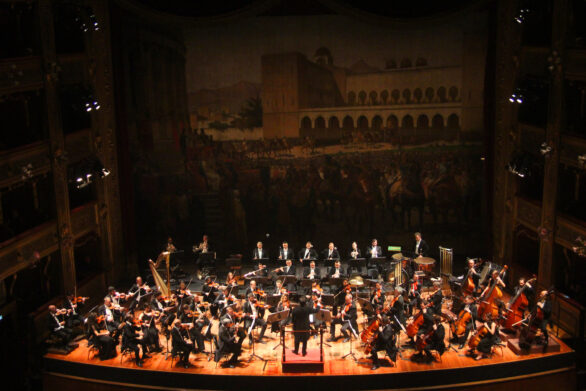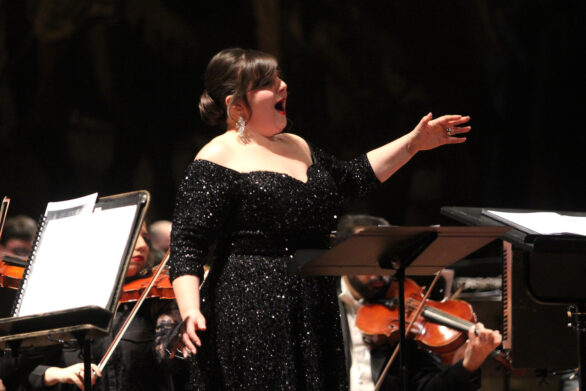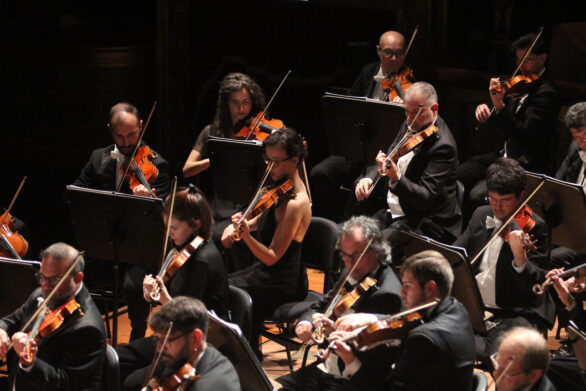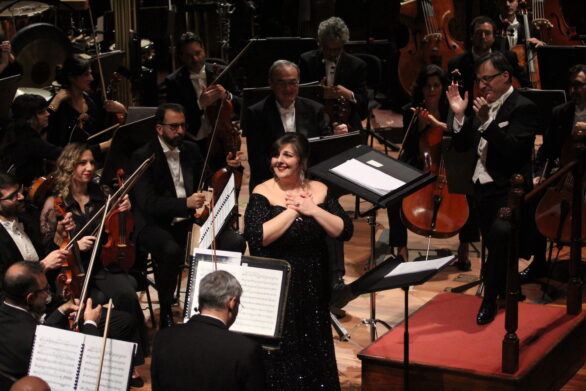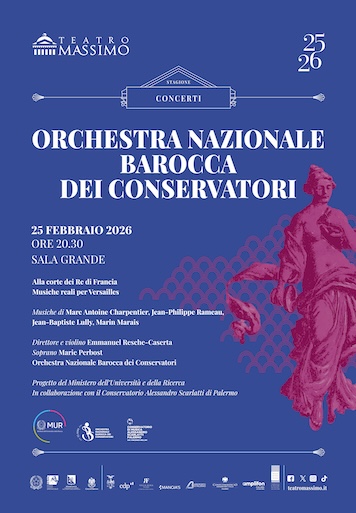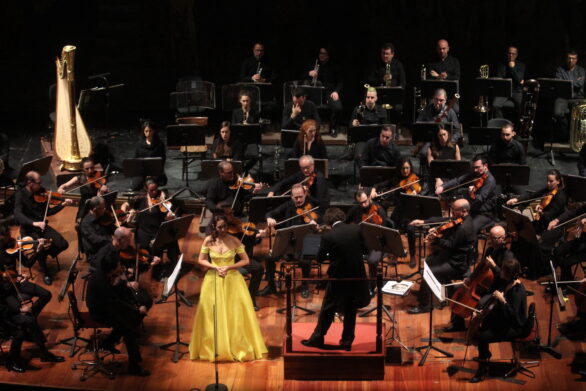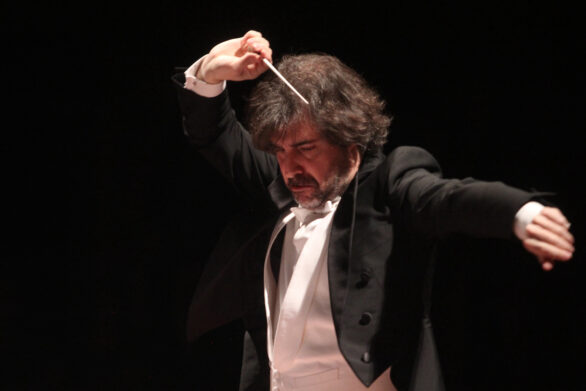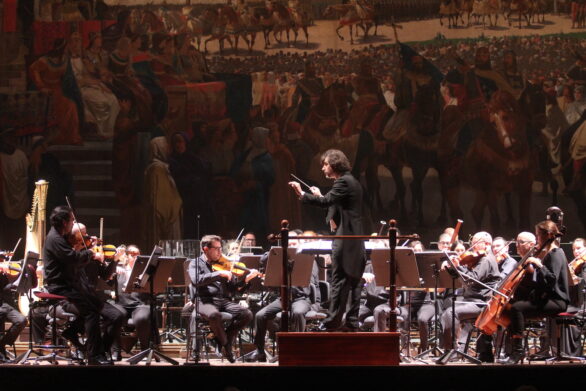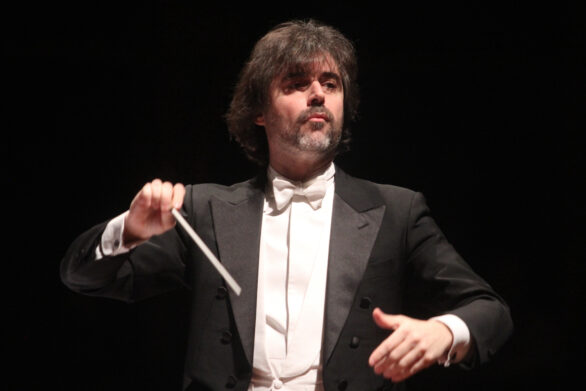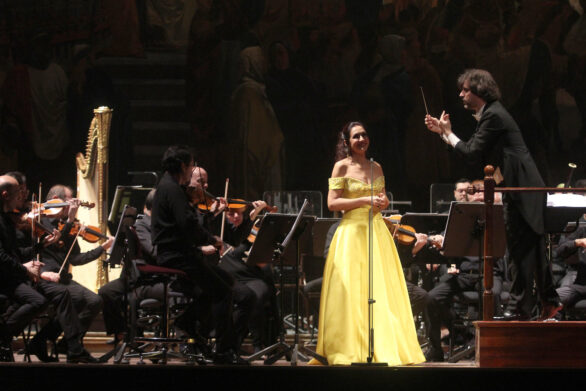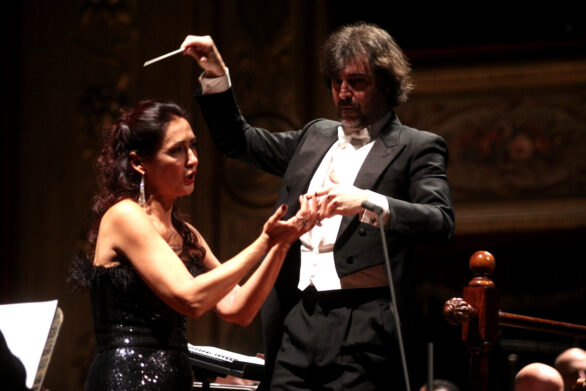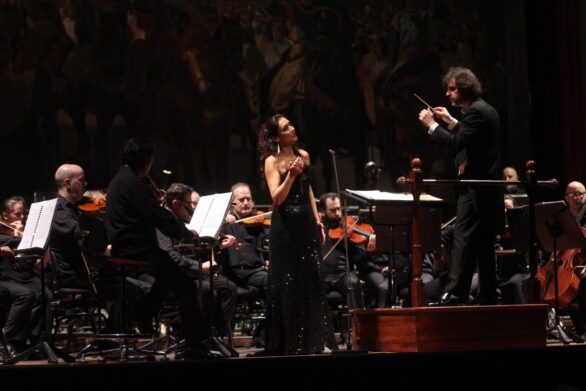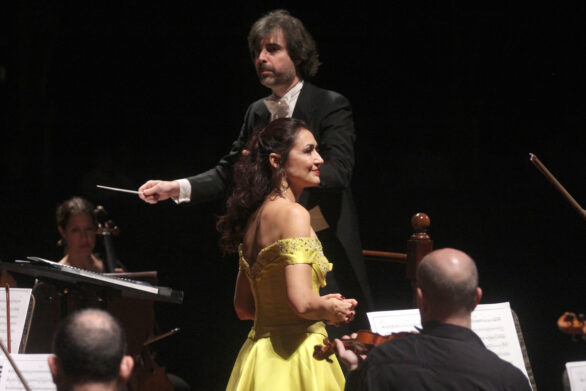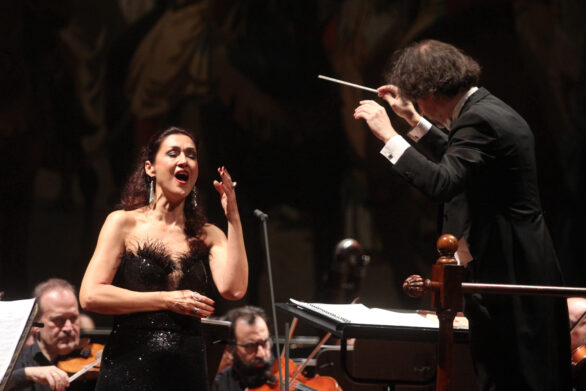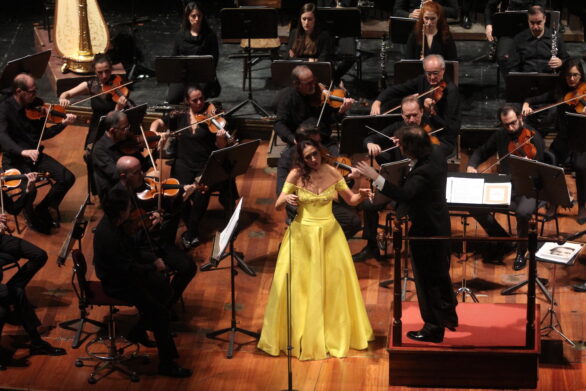Info
January 8 2026, 20:30 pm | Main Stage
Beethoven – Missa Solemnis
Conductor Umberto Clerici
Soprano Eleanor Lyons
Contralto Sofia Koberidze
Tenor Matteo Mezzaro
Bass Luca Tittoto
Teatro Massimo Orchestra and Chorus
Chorus Master Salvatore Punturo
Ludwig van Beethoven
Missa solemnis for solo, chorus and orchestra, Op. 123
Tickets
Tickets
Gallery
About
January 10 2025, 8:30pm – Main Stage, Teatro Massimo
Punturo – Requiem Tedesco
Conductor Salvatore Punturo
Pianoforte Giuseppe Cinà and Matteo Londero
Teatro Massimo Chorus
Johannes Brahms
Ein deutsches Requiem
(version for chorus and piano four hands)
Tickets
Booking
Booking opens on January 7 2025
Gallery
Info
February 8 2026, 8:30 pm| Main Stage
Beethoven / Poulenc
Conductor Frédéric Chaslin
Violin Salvatore Greco
Cello Kristi Curb
Soprano Julie Cherrier-Hoffmann
Soprano Giulia Semenzato
Teatro Massimo Orchestra and Chorus
Chorus Master Salvatore Punturo
Programme & Tickets
Ludwig van Beethoven
Triple concert for piano, violin and cello op. 56
Ludwig van Beethoven
Fantasia corale op. 80
Francis Poulenc
Fiançailles pour rire (orchestration Frédéric Chaslin)
Francis Poulenc
Stabat Mater
Soprano Giulia Semenzato
Gallery
Ph. Franco Lannino
Info
Giufà
Storie che viaggiano nel tempo
Piano, accordion and harpsichord Omer Meir Wellber
Tenor and guitar Mert Süngü
Fretless Guitar & e-bow Cenk Erdoğan
Doublebass Daniele Pisanelli
Percussions Silvia De Checchi
Music by Georg Friedrich Händel, Giuseppe Donizetti, Gioachino Rossini and taken from traditional turkish, sephardic and sicilian music
Tickets
Tickets
Booking opens on November 7 2023
Price range: 15 to 30 euro [check ticket fares & info]
Info for subscribers to the 2023-24 Season at the 2023-2024 Season Tickets Page
Gallery
About
January 12 2025, 8:30pm – Main Stage, Teatro Massimo
Clerici / Amarù
Folk Songs
Conductor Umberto Clerici
Mezzosoprano Chiara Amarù
Teatro Massimo Orchestra
György Ligeti
Concert Românesc
Luciano Berio
Folk Songs
Ludwig van Beethoven
Symphony No. 2 in D Major op. 36
Tickets
Booking
Booking opens on November 5 2024
Gallery
Info
February 25 2026, 8:30 pm | Main Stage
Orchestra Nazionale Barocca dei Conservatori
National Baroque Orchestra of the Italian Conservatories of Music
Conductor and violin Emmanuel Resche-Caserta
Soprano Marie Perbost
Orchestra Nazionale Barocca dei Conservatori
Project by the Ministry of University and Research
In collaboration with the Alessandro Scarlatti Conservatory of Music in Palermo
Programme
Marc-Antoine Charpentier
Marche de Triomphe (1691ca.)
Marc-Antoine Charpentier
Ouverture from the Te Deum (1692)
Jean-Philippe Rameau
Aria of the Folie from the ballet bouffon Platée (1745)
Jean-Baptiste Lully
Suite from the comédie-ballet Le Bourgeois Gentilhomme (1670)
Jean-Baptiste Lully
Passacaille from the tragédie lyrique Armide Passacaille (1686)
Marin Marais
Suite from the tragédie lyrique Alcyone (1706)
Jean-Philippe Rameau
Aria “Tristes apprêts”, from the tragédie lyrique Castor et Pollux (1737)
Jean-Philippe Rameau
Suite from the opéra-ballet Les Indes Galantes (1735)
Jean-Philippe Rameau
Aria “Aquilons fougueux”, from the tragédie lyrique Dardanus (1739)
Jean-Philippe Rameau
Entrée de Polymnie, from the tragédie lyrique Les Boréades (1763)
Jean-Philippe Rameau
Rigaudons from the ballet bouffon Platée (1745)
Jean-Philippe Rameau
Musette en Rondeau from the opéra-ballet Les Fêtes d’Hébé (1739)
Jean-Philippe Rameau
Tambourin en Rondeau from the opéra-ballet Les Fêtes d’Hébé (1739)
Jean-Philippe Rameau
Aria “Rossignols amoureux”, from the tragédie lyrique Hippolyte et Aricie (1733)
Jean-Philippe Rameau
Chaconne dall’opéra-ballet Les Indes Galantes (1735)
Info
Conductor Alessandro Cadario
Soprano Myrtò Papatanasiu
Teatro Massimo Orchestra
Under the Patronage of the President of the Hellenic Republic Katerina Sakellaropoulou
In collaboration with the Hellenic Comunity in Sicily Trinacria
Programme
Music by
Charles Gounod, Giuseppe Verdi, Giacomo Puccini, Nikolaos Skalkottas, Maurice Ravel, Mikis Theodorakis
Tickets
Booking opens on November 7 2023
Price range: 15 to 30 euro [check ticket fares & info]
Info for subscribers to the 2023-24 Season at the 2023-2024 Season Tickets Page
Gallery
About
February 7 2025, 8:30pm – Main Stage, Teatro Massimo
Fratta / Lewis – Beethoven / Mendelssohn
Conductor Gianna Fratta
Piano Paul Lewis
Teatro Massimo Orchestra and Chorus
Ludwig van Beethoven
Concerto No. 5 for piano and orchestra in E Flat major, op. 73 “Imperatore”
Felix Mendelssohn
Symphony No. 3 in A minor for orchestra, op. 56 “Scozzese”
Tickets
Biglietti
Booking opens on December 3 2025
Info
Peter Eötvös
November 9 2019, 20:30 |Main stage, Teatro Massimo
Info
György Ligeti
Atmosphères
Péter Eötvös
Alle vittime senza nome (2016)
Per Luciano Berio
Franz Liszt
Eine Symphonie zu Dante’s Divina Commedia S109
Conductor Peter Eötvös
Teatro Massimo Chorus and Orchestra
Programme
Programme
In addition to the influence of Dante, this colossal work is also shadowed by Richard Wagner, to whom the composition is dedicated. By sending him a copy of the complete score, on Easter day, Liszt wrote to Wagner: «As Virgil did for Dante, in the same way you taught me the way through the mysterious contradas of the sublime worlds of sounds. From the deepest heart I cry to you “You are my teacher and my author!” and consecrate this work with immutable faithful love». It always amazes the humility with which Liszt, although older and decidedly more famous (and rich) than Wagner, recognized the superiority of his future son-in-law. That he never reciprocated with esteem or gratitude; on the contrary, in the case of the Symphony on the Divine Comedy he suggested not to dare to attempt to represent Paradise. It is thus that the first two parts (Hell and Purgatory) are not followed by a third, but the symphony ends with a Magnificat entrusted to a female choir.
